
The Timeless Wonder of Machu Picchu
Machu Picchu, nestled high in the Andes Mountains of Peru, is a place of mystery and wonder. This ancient Incan city, perched at an altitude of 2,430 meters, is one of the most iconic archaeological sites in the world. Visitors are greeted by the impressive ruins of temples, terraces, and plazas that tell the story of a bygone civilization. The breathtaking views of the surrounding mountains and lush greenery add to the enchanting atmosphere, making Machu Picchu a must-visit destination for history buffs and nature lovers alike. As you explore the site, you'll be transported back in time, walking the same paths that the Incas once did. The intricate stonework and engineering marvels, such as the Temple of the Sun and the Intihuatana stone, showcase the advanced knowledge and skills of the ancient builders. The site's isolation and the effort required to reach it only add to its allure, making the journey to Machu Picchu a memorable adventure. Beyond the ruins, the region offers various trekking opportunities, including the famous Inca Trail. This multi-day hike takes you through stunning landscapes, passing by other Incan sites and offering glimpses of local wildlife. Whether you choose to hike or take the train, the journey to Machu Picchu is an experience in itself, filled with awe-inspiring scenery and a sense of connection to the past.
Local tips in Machu Picchu
- Book your tickets in advance, as daily visitor numbers are limited to preserve the site.
- Consider visiting during the dry season (May to September) for the best weather conditions.
- Wear comfortable walking shoes, as the terrain can be uneven and steep.
- Acclimate to the altitude by spending a few days in Cusco before heading to Machu Picchu.
- Hire a local guide to enrich your visit with detailed historical insights.
Neighbourhoods in Machu Picchu
The Timeless Wonder of Machu Picchu
Machu Picchu, nestled high in the Andes Mountains of Peru, is a place of mystery and wonder. This ancient Incan city, perched at an altitude of 2,430 meters, is one of the most iconic archaeological sites in the world. Visitors are greeted by the impressive ruins of temples, terraces, and plazas that tell the story of a bygone civilization. The breathtaking views of the surrounding mountains and lush greenery add to the enchanting atmosphere, making Machu Picchu a must-visit destination for history buffs and nature lovers alike. As you explore the site, you'll be transported back in time, walking the same paths that the Incas once did. The intricate stonework and engineering marvels, such as the Temple of the Sun and the Intihuatana stone, showcase the advanced knowledge and skills of the ancient builders. The site's isolation and the effort required to reach it only add to its allure, making the journey to Machu Picchu a memorable adventure. Beyond the ruins, the region offers various trekking opportunities, including the famous Inca Trail. This multi-day hike takes you through stunning landscapes, passing by other Incan sites and offering glimpses of local wildlife. Whether you choose to hike or take the train, the journey to Machu Picchu is an experience in itself, filled with awe-inspiring scenery and a sense of connection to the past.
When is the best time to go to Machu Picchu?
Iconic landmarks you can’t miss
Historic Sanctuary of Machu Picchu
Explore the Historic Sanctuary of Machu Picchu, an archaeological wonder showcasing Inca civilization amidst stunning Andean landscapes.
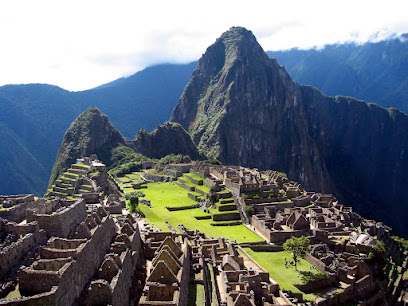
Manco Capac Square
Discover the charm of Manco Capac Square in Aguas Calientes, a cultural hub showcasing beautiful landscapes and historical significance.
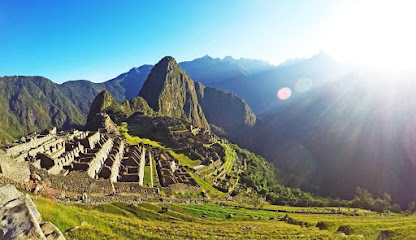
Mapacho Craft Beer Restaurant
Discover the vibrant flavors of Peru at Mapacho Craft Beer Restaurant, where traditional cuisine meets artisanal brews in a lively setting.
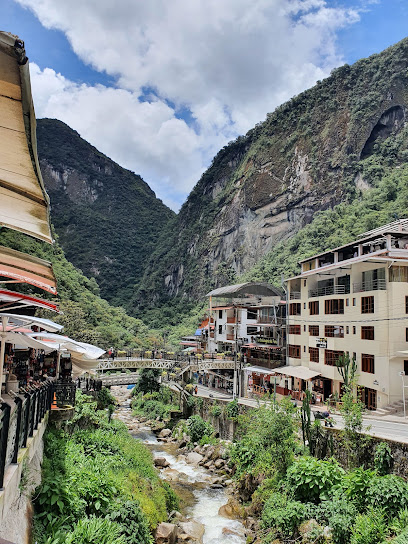
Chullos Restaurant & Craft Beer
Explore the vibrant flavors of Peru at Chullos Restaurant & Craft Beer in Aguas Calientes, where culinary creativity meets local tradition.
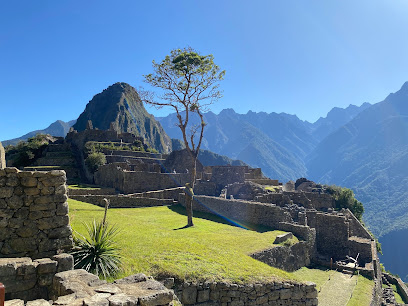
Full House Peruvian cuisine &craft beer
Experience the best of Peruvian cuisine and craft beer at Full House in Aguas Calientes, a culinary jewel near Machu Picchu.
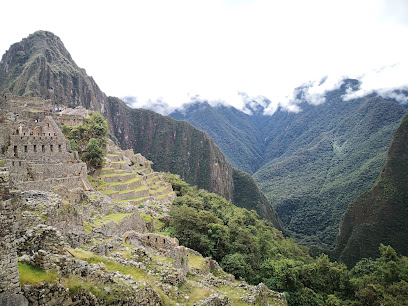
Sanctuary Lodge, A Belmond Hotel, Machu Picchu
Discover luxury and comfort at Sanctuary Lodge, A Belmond Hotel, right at the doorstep of Machu Picchu, the iconic wonder of the world.

Ponchos Machupicchu Restaurant
Experience the essence of Peruvian cuisine at Ponchos Machupicchu Restaurant in Aguas Calientes — a must for every traveler exploring Machu Picchu.
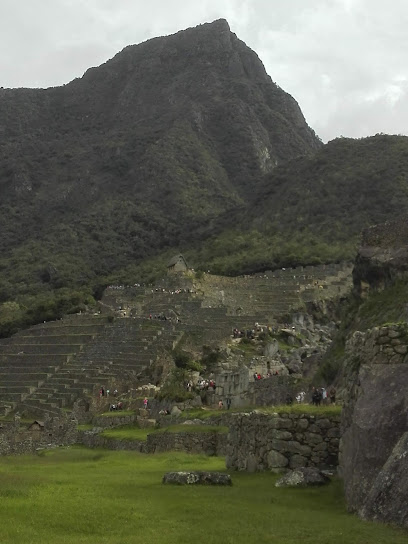
Huayna Picchu
Experience the breathtaking heights of Huayna Picchu, where ancient ruins meet stunning mountain vistas in the heart of Peru.
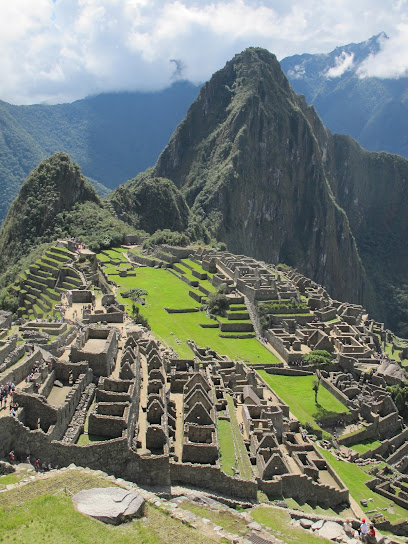
Sun Gate
Experience the breathtaking views from Sun Gate, the iconic entrance to Machu Picchu, nestled in the heart of the Andes.
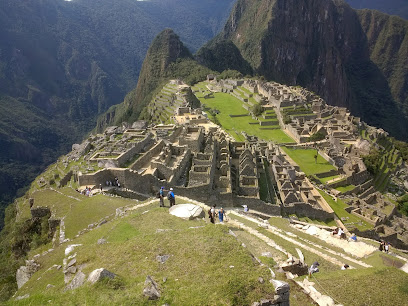
Inkaterra Machu Picchu Pueblo Hotel
Experience the allure of Machu Picchu from the luxurious Inkaterra Machu Picchu Pueblo Hotel, your gateway to Peruvian culture and stunning nature.
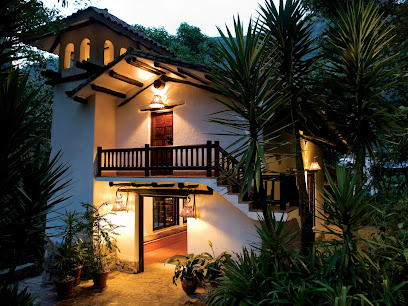
Baños Termales (Machu Picchu)
Discover the relaxing hot springs of Baños Termales in Machu Picchu, a perfect retreat after your Inca adventure, surrounded by breathtaking Andes mountains.
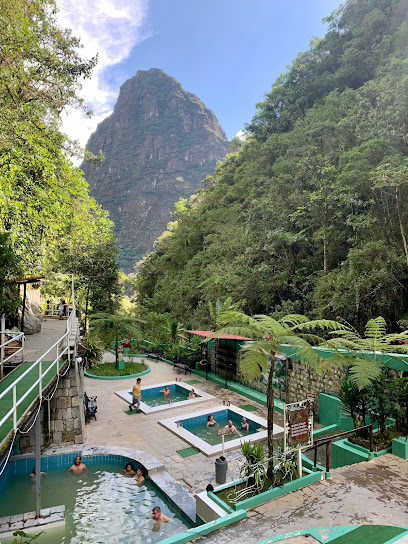
Mariposario of Machu Picchu
Discover the beauty of the Mariposario of Machu Picchu, where colorful butterflies dance among stunning flora in a serene sanctuary.
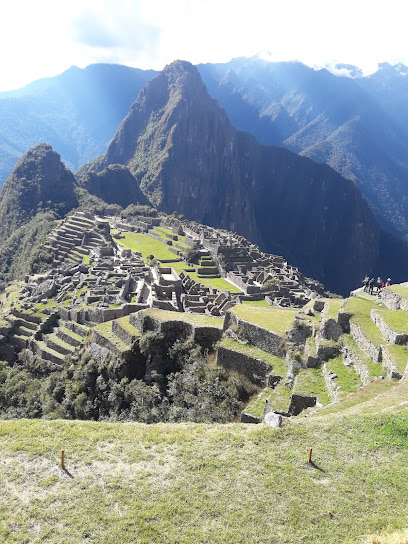
Inti Punku Machupicchu Hotel & Suites
Discover unparalleled comfort and breathtaking views at Inti Punku Machupicchu Hotel & Suites in Aguas Calientes, your gateway to Machu Picchu.

Manuel Chávez Ballón Site Museum
Uncover the ancient secrets of Peru at the Manuel Chávez Ballón Site Museum, a treasure trove of archaeological wonders and cultural heritage.
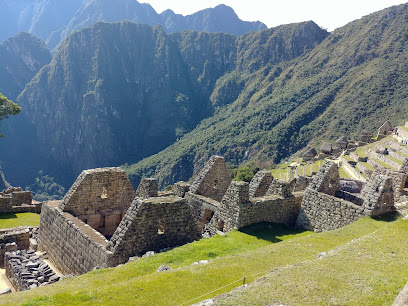
Mercado Aguas Calientes
Discover the vibrant Mercado Aguas Calientes, a cultural hub filled with local crafts, delicious Peruvian cuisine, and the warmth of Andean hospitality.
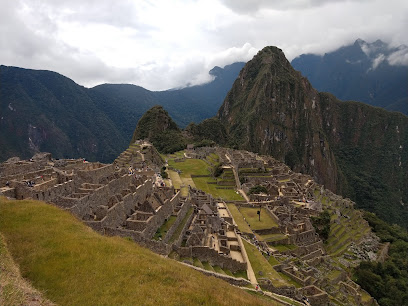
Unmissable attractions to see
Ollantaytambo Sanctuary
Explore the enchanting Ollantaytambo Sanctuary, an ancient Inca site filled with stunning terraces, temples, and breathtaking views in the Sacred Valley of Peru.
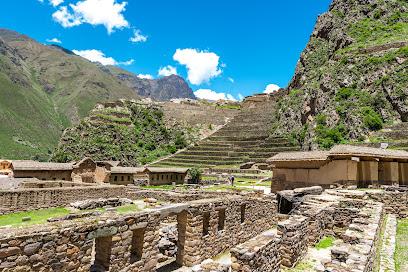
Moray
Explore the breathtaking terraces of Moray, an ancient Inca agricultural site in Peru's Sacred Valley, rich in history and stunning landscapes.
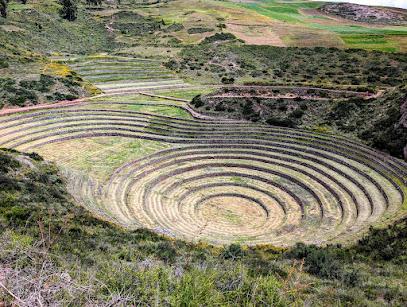
Manco Capac Square
Discover the tranquility and cultural richness of Manco Capac Square, the vibrant heart of Aguas Calientes, surrounded by breathtaking natural beauty.
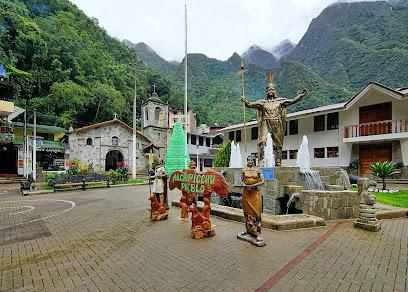
Mercado de Urubamba
Discover the authentic flavors and vibrant culture at Mercado de Urubamba, a must-visit destination in the heart of Peru's Sacred Valley.
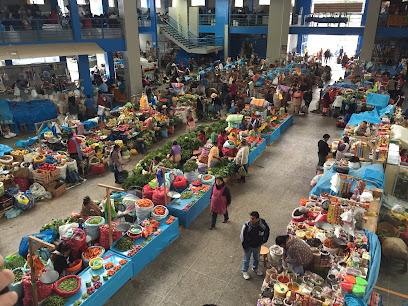
Salt Mine of Maras
Explore the stunning Salt Mines of Maras in Peru's Sacred Valley, a UNESCO World Heritage site showcasing ancient salt extraction and breathtaking landscapes.
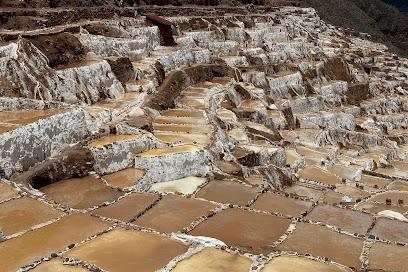
Cerveceria del Valle Sagrado
Discover the essence of craft brewing at Cerveceria del Valle Sagrado in Pachar—where local culture meets exceptional flavors in every sip.
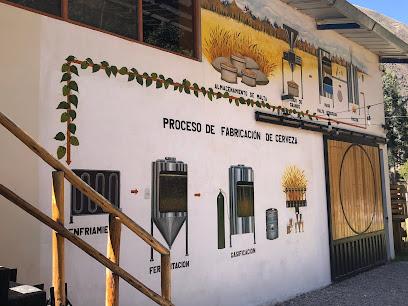
Humantay Lake
Experience the stunning beauty of Humantay Lake, a breathtaking turquoise gem nestled in the Andes, perfect for adventure seekers and nature lovers alike.
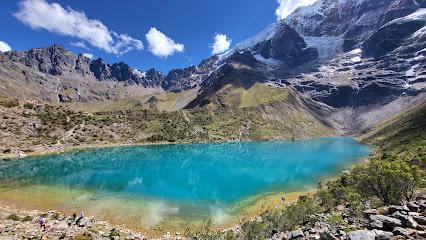
Mandor
Explore Mandor, a stunning botanical garden and ecological park in Aguas Calientes, rich in biodiversity and breathtaking landscapes.
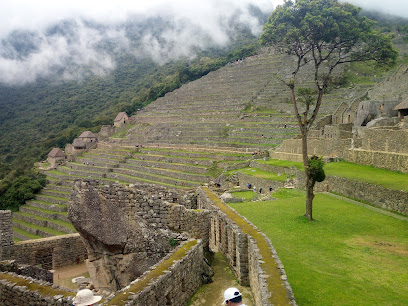
Choquequirao Archaeological Park
Experience the breathtaking beauty and rich history of Choquequirao, an Incan archaeological site set in the majestic Andes mountains.
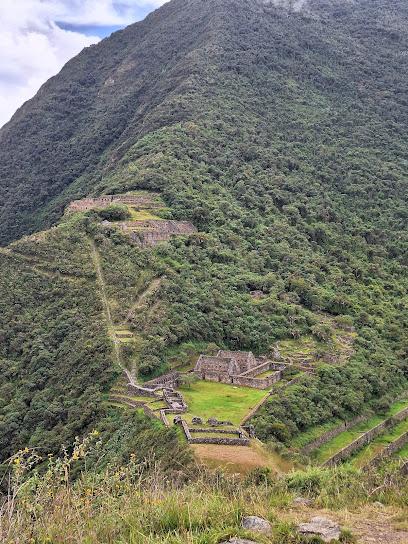
Manuel Chávez Ballón Site Museum
Explore the Manuel Chávez Ballón Site Museum, a treasure trove of ancient artifacts in Peru that unveils the rich cultural heritage of the region.
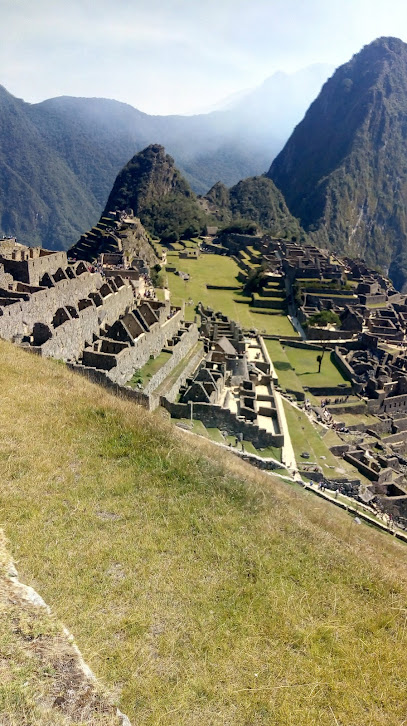
Sacred Rock at Machu Picchu
Discover the Sacred Rock at Machu Picchu, an iconic symbol of Incan spirituality and breathtaking natural beauty amid the ancient ruins.
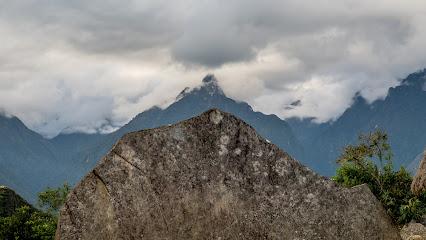
Temple of the Three Windows
Explore the Temple of the Three Windows, a breathtaking Incan architectural marvel at Machu Picchu with stunning views and rich history.
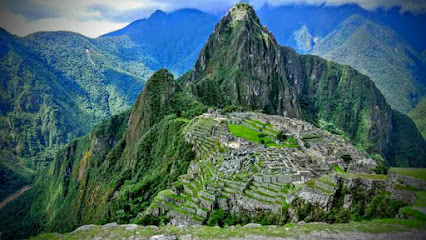
Naupa Iglesia (Choquequilla)
Explore the ancient wonders of Naupa Iglesia (Choquequilla) in LaSalle, Peru, where history and natural beauty intertwine.
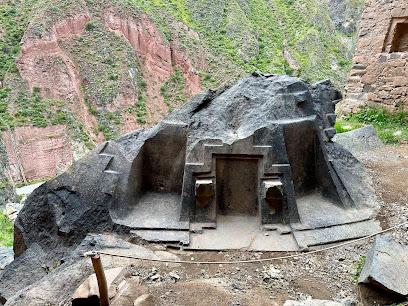
Intipata
Explore Intipata, the serene Inca terraces in Aguas Calientes, where history meets breathtaking landscapes in the heart of Peru.
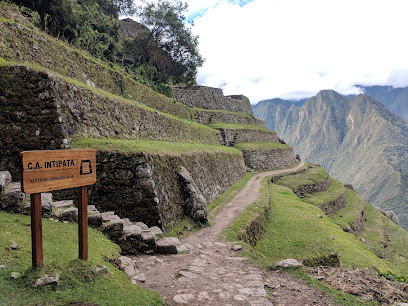
House of the Guardian to the Funerary Rock at Machu Picchu
Experience the breathtaking views and rich history at the House of the Guardian to the Funerary Rock in Machu Picchu, a key highlight of any Peruvian adventure.
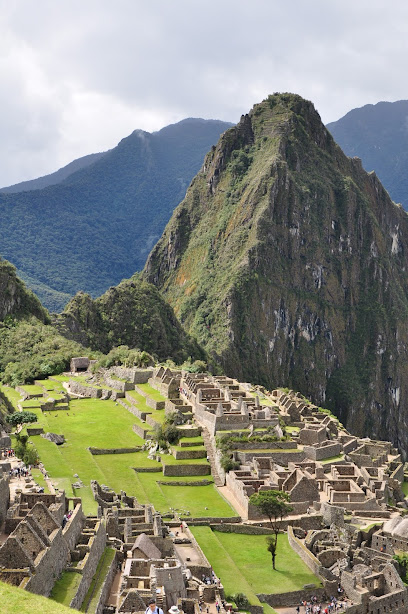
Essential places to dine
Mapacho Craft Beer Restaurant
Experience authentic Peruvian flavors paired with exquisite craft beers at Mapacho Craft Beer Restaurant in Cusco.
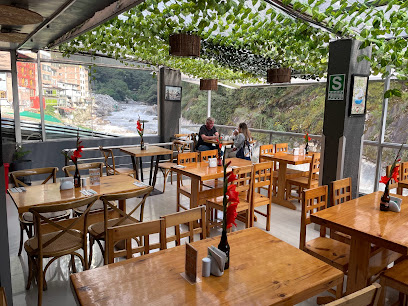
Chullos Restaurant & Craft Beer
Experience authentic Peruvian cuisine and local craft beers at Chullos Restaurant & Craft Beer in Aguas Calientes.
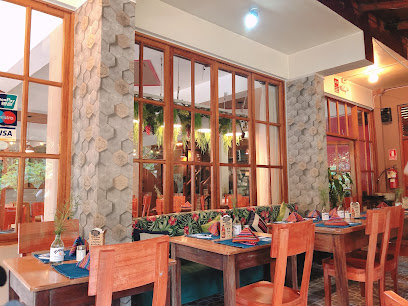
Full House Peruvian cuisine &craft beer
Experience authentic Peruvian flavors at Full House in Aguas Calientes - a culinary delight near Machu Picchu.
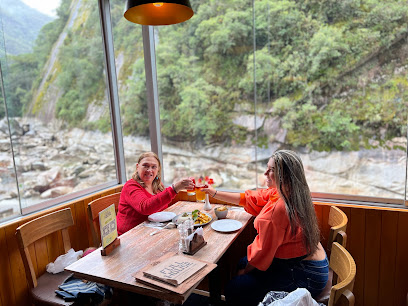
Restaurant Bistro Bar Indio Feliz
Experience the best of Peruvian cuisine at Bistro Bar Indio Feliz in Aguas Calientes - a must-visit dining destination for every traveler.
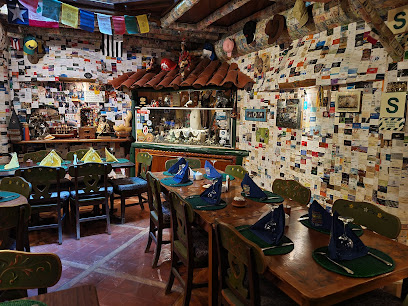
Incontri del Pueblo Viejo
Experience authentic Italian cuisine at Incontri del Pueblo Viejo in Aguas Calientes - where every dish tells a story.
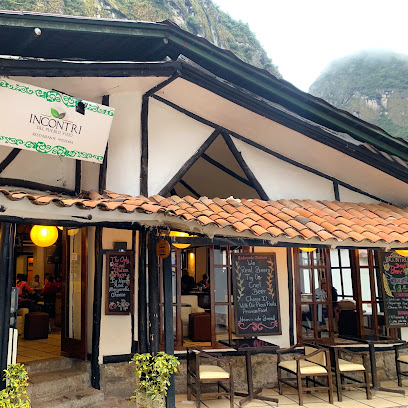
Ponchos Machupicchu Restaurant
Experience authentic Peruvian cuisine at Ponchos Machupicchu Restaurant in Aguas Calientes – where flavor meets breathtaking views.
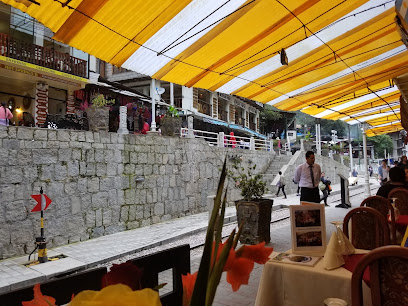
Chef House
Experience authentic Peruvian cuisine at Chef House in Aguas Calientes, where each dish tells a story of tradition and flavor.
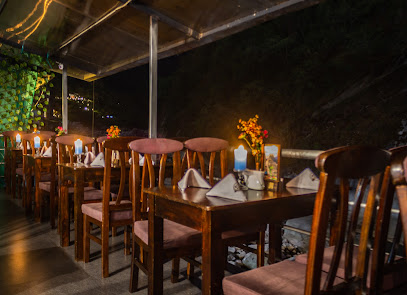
Toto's House
Discover authentic Peruvian flavors at Toto's House in Aguas Calientes—where culinary excellence meets breathtaking views.
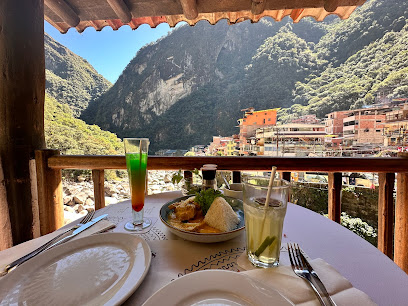
Julian Restaurant
Experience authentic Peruvian cuisine at Julian Restaurant in Aguas Calientes - where tradition meets taste.
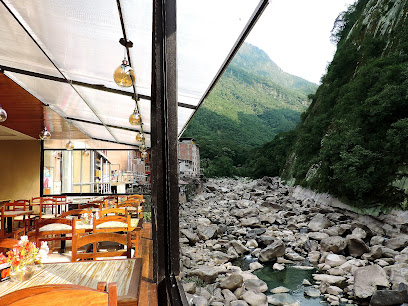
Magguis Grill Craft Beer
Experience the best of Peruvian cuisine at Magguis Grill Craft Beer in Aguas Calientes—delicious food paired with exquisite local craft beers await you.
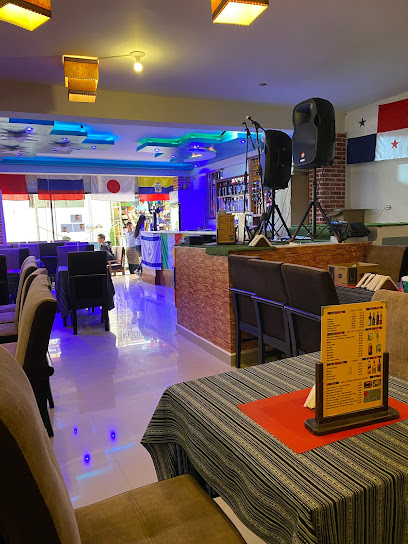
Apu Inti Restaurante
Experience authentic Peruvian cuisine at Apu Inti Restaurante in Aguas Calientes, featuring delicious alpaca dishes and traditional favorites.
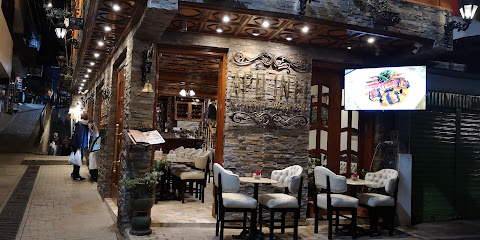
Inka Wasi Restaurant
Experience authentic Peruvian cuisine at Inka Wasi Restaurant in Aguas Calientes – where tradition meets flavor in every dish.
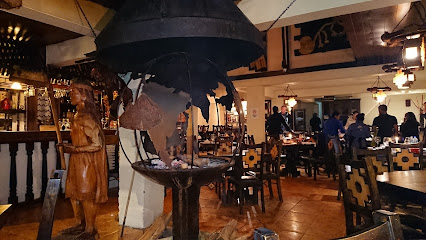
Tao Dulce Salado
Experience delicious hamburgers and artisanal ice cream at Tao Dulce Salado in Aguas Calientes – your perfect retreat after exploring Machu Picchu.
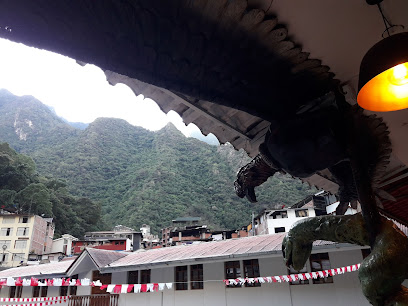
Govinda Restaurant VEGANO
Discover delicious vegan delights at Govinda Restaurant VEGANO in Aguas Calientes - where healthy eating meets Peruvian culinary artistry.
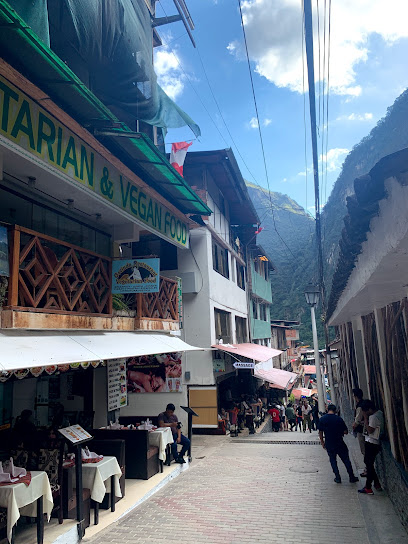
Inti House
Discover Inti House in Aguas Calientes: Authentic Peruvian flavors await you at this cozy restaurant near Machu Picchu.
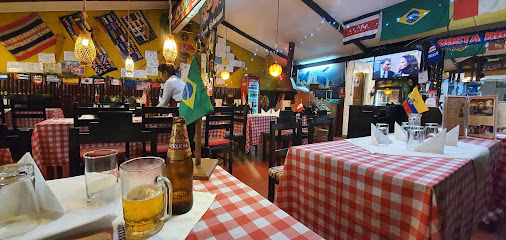
Markets, malls and hidden boutiques
Mercado Aguas Calientes
Discover the vibrant Mercado Aguas Calientes, where local culture, authentic cuisine, and unique handicrafts come together in a bustling market experience.
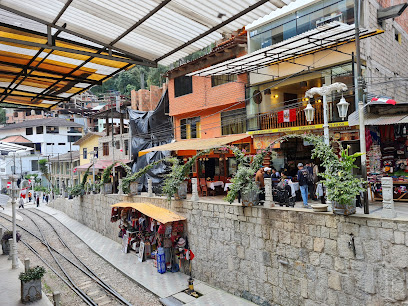
La Boulangerie de Paris - Machupicchu
Experience the taste of France in Aguas Calientes with exquisite pastries, refreshing ice creams, and aromatic coffees at La Boulangerie de Paris.
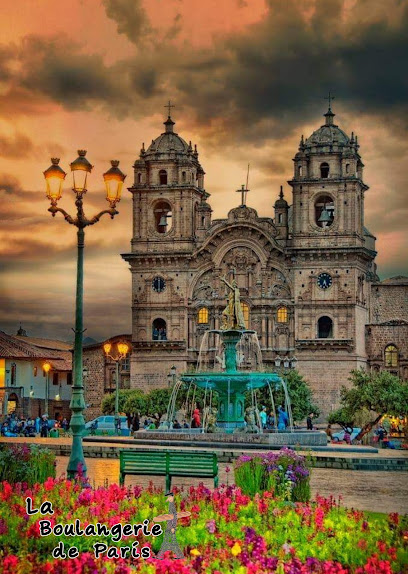
Coffee Trotter Perú
Discover the perfect blend of artisanal coffee and vegetarian cuisine at Coffee Trotter Perú, a must-visit café in Aguas Calientes.
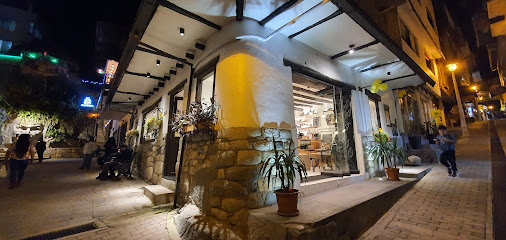
Tao Dulce Salado
Discover the flavors of Peru at Tao Dulce Salado, where gourmet burgers and artisanal ice creams meet stunning views in Aguas Calientes.
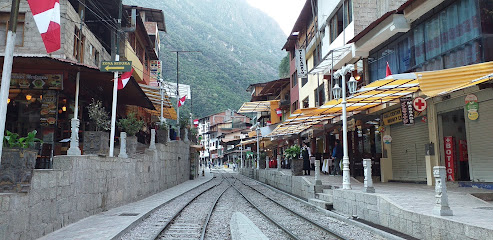
Crepes & Coffee 11 12 plaza
Experience the best crepes and desserts in Aguas Calientes, perfectly located for tourists exploring Machu Picchu.
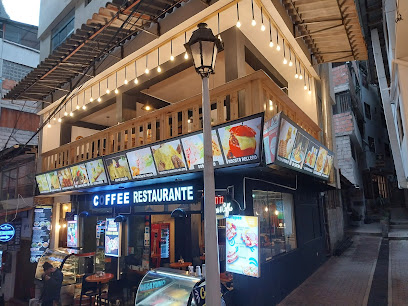
Crepería de París - Machupicchu
Experience the best crepes and desserts in Aguas Calientes, just steps from Machu Picchu, at Crepería de París - a culinary gem for every traveler.
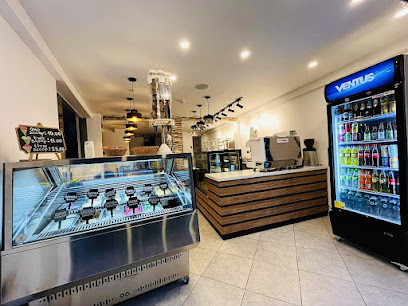
Quechua´s House - Coffee Bookshop
Discover Aguas Calientes' hidden gem, Quechua's House, where coffee culture meets literary charm in a serene setting.
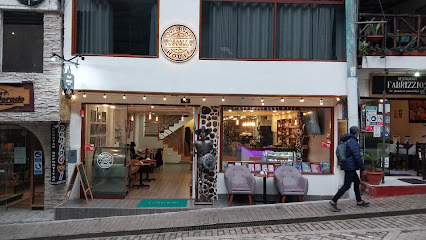
Blanco y Negro
Experience the rich flavors of Peru at Blanco y Negro, a cozy coffee shop in Aguas Calientes, perfect for travelers exploring Machu Picchu.
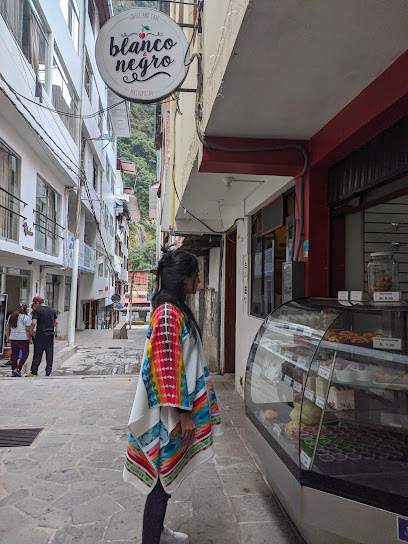
CONDORITO MARKET
Explore the vibrant flavors of Peru at Condorito Market, your local grocery store in Aguas Calientes, filled with fresh produce and traditional snacks.
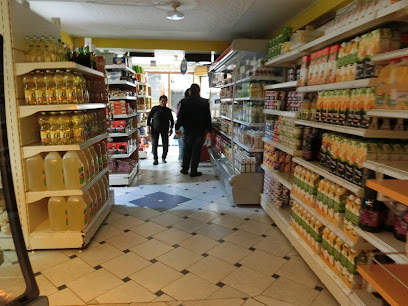
El Sara Jewelry
Discover exquisite handcrafted jewelry at El Sara Jewelry in Aguas Calientes, reflecting the rich culture and artistry of Peru.
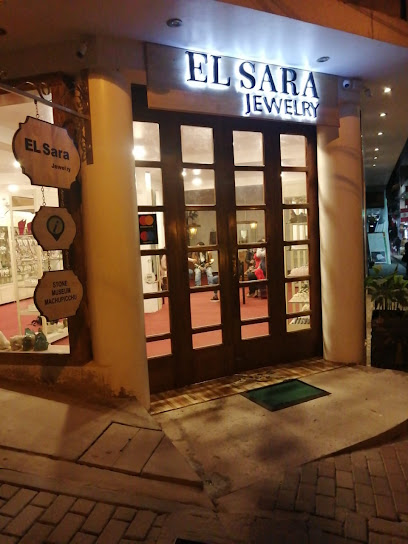
Mapi Art
Explore the vibrant culture of Peru at Mapi Art, where unique clothing and handmade jewelry await in the heart of Aguas Calientes.
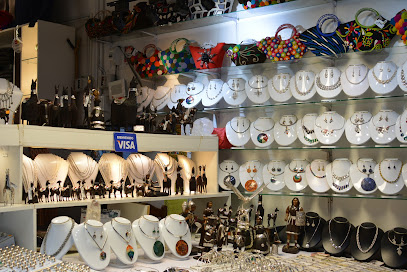
Arte Rumi Wasi
Discover unique, handcrafted jewelry at Arte Rumi Wasi, Aguas Calientes' premier jewelry store showcasing Peruvian artistry and craftsmanship.
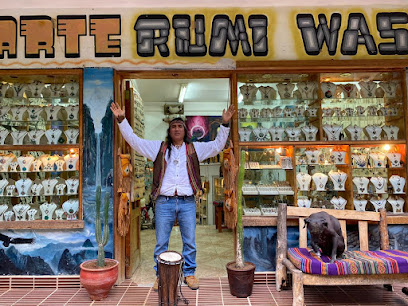
Inka Statue
Explore the Inka Statue in Aguas Calientes: a breathtaking monument celebrating the rich heritage of the Inca civilization amidst stunning Andean landscapes.
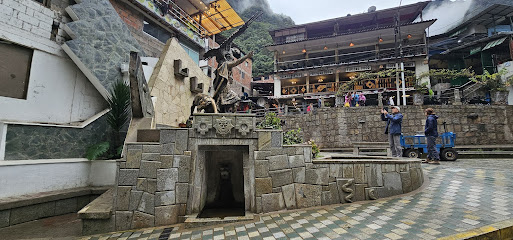
Parada de buses Machu Picchu
Experience the enchanting gateway to Machu Picchu, where adventure begins and stunning Andean views await every traveler.
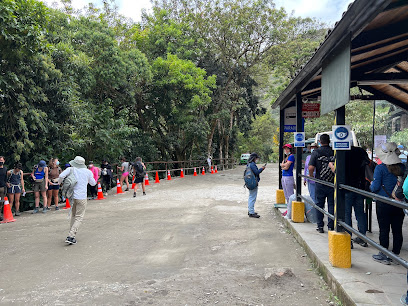
Sumac Aclla
Experience the vibrant atmosphere of Sumac Aclla Market in Aguas Calientes, where local crafts and flavors come alive.
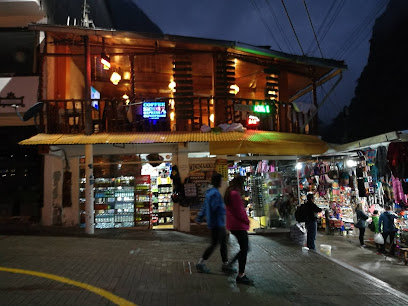
Essential bars & hidden hideouts
Mapacho Craft Beer Restaurant
Discover the best of Peruvian cuisine and craft beer at Mapacho Craft Beer Restaurant in Cusco, where every dish tells a story.
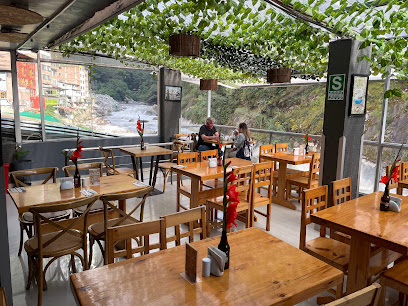
Chullos Restaurant & Craft Beer
Experience the best of Peruvian cuisine at Chullos Restaurant & Craft Beer, where local flavors meet a vibrant atmosphere in Aguas Calientes.
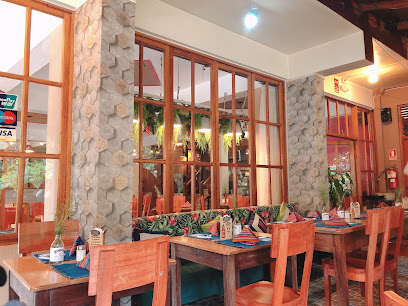
Full House Peruvian cuisine &craft beer
Experience the authentic taste of Peru with delightful dishes and local craft beers at Full House in Aguas Calientes.
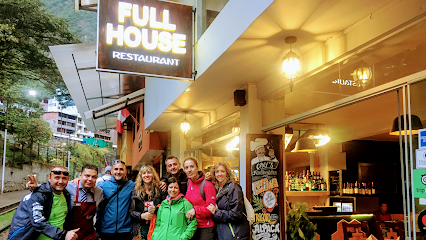
Magguis Grill Craft Beer
Experience the best of Peruvian cuisine and craft beer at Magguis Grill, a local favorite in Aguas Calientes, near Machu Picchu.
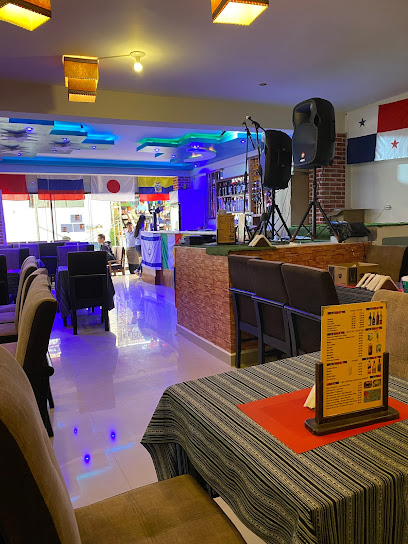
Machu Pisco Bar & Restaurant
Experience the essence of Peru at Machu Pisco Bar & Restaurant, where authentic flavors meet breathtaking surroundings in Aguas Calientes.
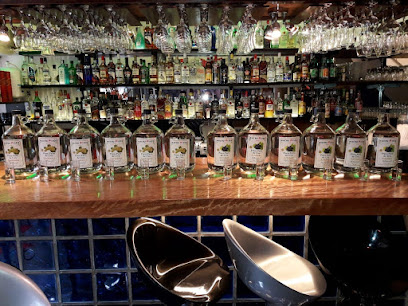
Inka Happiness Cultural Bar
Discover the vibrant blend of Peruvian culture and culinary delights at Inka Happiness Cultural Bar in Aguas Calientes, a must-visit for all travelers.
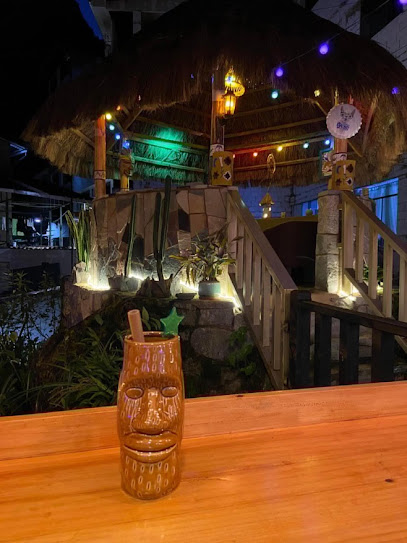
Snack Bar
Experience the authentic flavors of the region at Snack Bar, a cozy restaurant perfect for tourists seeking local cuisine.
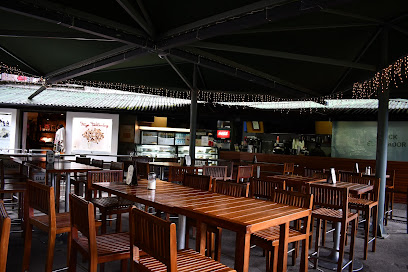
North Village Bohemian
Experience the essence of Aguas Calientes at North Village Bohemian, where innovative cocktails meet vibrant local culture in a cozy atmosphere.
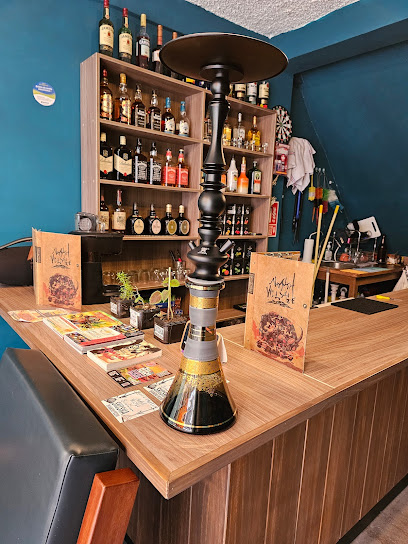
19.18Club.
Discover the energetic nightlife of Aguas Calientes at 19.18Club, where cocktail artistry meets an electrifying dance atmosphere.
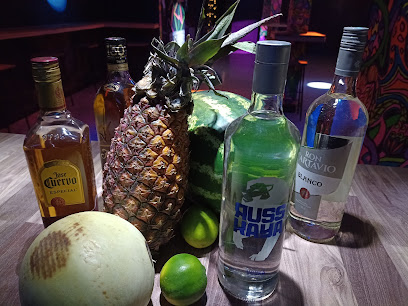
Tampu Restaurant at Sanctuary Lodge
Experience the essence of Peruvian gastronomy at Tampu Restaurant, just steps from the iconic Machu Picchu, with breathtaking views and a tranquil ambiance.
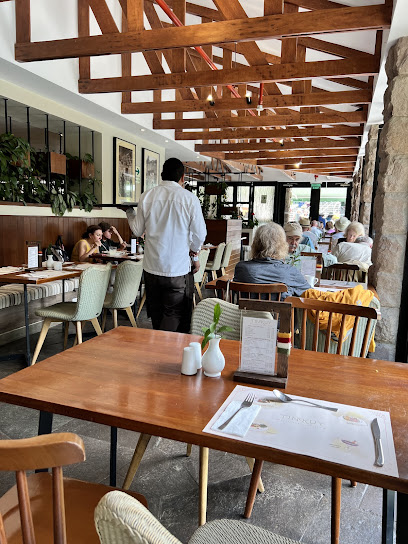
RESTOBAR ALPAKITAY
Discover the flavors of Peru at Restobar Alpakitay, a grill bar in Aguas Calientes serving mouthwatering dishes in a cozy atmosphere.
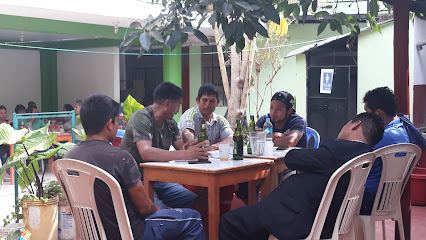
Big Brother's Bar
Experience the vibrant atmosphere and local flavors at Big Brother's Bar in Aguas Calientes, the ideal spot to relax after exploring Machu Picchu.
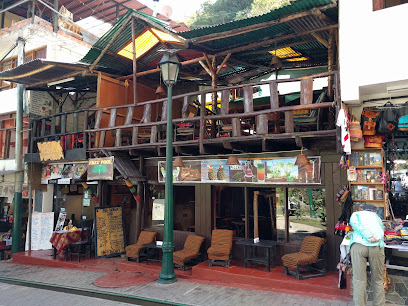
El duende feliz
Discover El Duende Feliz, a cozy bar in Aguas Calientes offering local drinks and a vibrant atmosphere for travelers exploring Machu Picchu.
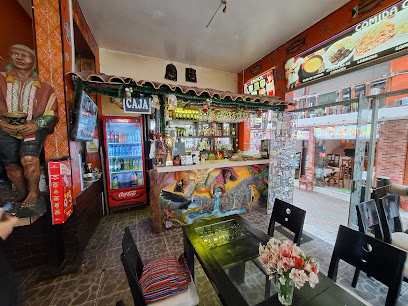
Blues RestoBarCaffe
Discover the vibrant flavors of Aguas Calientes at Blues RestoBarCaffe, a unique gastropub blending local and international culinary delights.
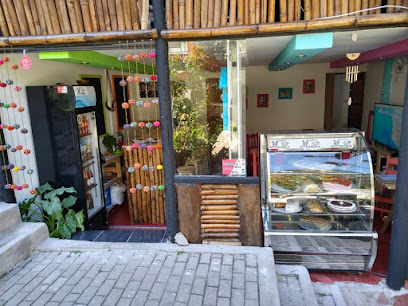
Terraza Cósmica by Supertramp
Discover the vibrant atmosphere and breathtaking views of Terraza Cósmica by Supertramp, the perfect bar for unwinding after exploring Machu Picchu.
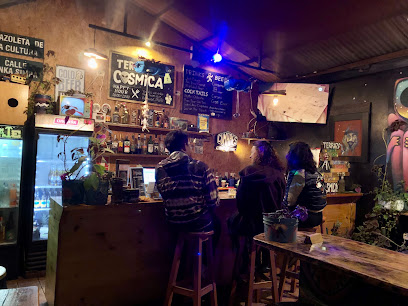
Travel experiences inspired by this city
Explore more travel diariesLocal Phrases
-
- HelloQanïsqa
[KAH-nees-kah] - GoodbyeAllinllachu
[AHL-leen-YAH-choo] - YesArí
[AH-ree] - NoManan
[MAH-nahn] - Please/You're welcomeAma llulla
[AH-mah YOOL-yah] - Thank youSulpayki
[SOOL-pie-kee] - Excuse me/SorryDispinsayay
[DEES-peen-sah-yie] - How are you?Imaynalla?
[ee-MYAI-nah-yah] - Fine. And you?Allin. Chaymanta?
[AHL-leen. CHAI-mahn-tah] - Do you speak English?Inglis simi mikuyta munanki?
[IN-glees SEE-mee mee-KOOY-tah moo-NAHN-kee] - I don't understandMana yachakuy
[MAH-nah yah-CHA-kooie]
- HelloQanïsqa
-
- I'd like to see the menu, pleaseMenuyta qawaychani, yaparin
[MEH-noo-yah-tah kah-WAI-chan-ee, yah-pah-REEN] - I don't eat meatQali mikunmanmi
[KAH-lee mee-KOON-mahn-mee] - Cheers!Salud!
[SAH-lood] - I would like to pay, pleaseRimayta wasichani, yaparin
[REE-mai-tah wah-SEE-chan-ee, yah-pah-REEN]
- I'd like to see the menu, pleaseMenuyta qawaychani, yaparin
-
- Help!Yawarapuy!
[YAH-wah-rah-pooie] - Go away!Urkupuy!
[OOR-koo-pooie] - Call the Police!Polisia llamachiy!
[poh-lee-SEE-ah yah-MAH-chee] - Call a doctor!Allin willaku llamachiy!
[AHL-leen wee-YAH-koo yah-MAH-chee] - I'm lostLlakipay
[YAH-kee-pie] - I'm illPukuy
[POO-kooie]
- Help!Yawarapuy!
-
- I'd like to buy...Sapallayta yachani...
[SAH-pahl-lie-tah yah-CHAH-nee] - I'm just lookingQawaymanchu
[KAH-WAI-mahn-choo] - How much is it?Imataq chay?
[ee-MAH-tahch chie] - That's too expensiveChaypi chaski
[CHIE-pee CHAH-skee] - Can you lower the price?Qullqiyta sumaqchayki?
[KOOL-yee-tah soo-MAHK-chahy-kee]
- I'd like to buy...Sapallayta yachani...
-
- What time is it?Imaynataq
[ee-MYAI-nah-tahch] - It's one o'clockHuk pachakama
[HOOK pah-chah-KAH-mah] - Half past (10)Iskay urqukama
[ees-KIE OOR-koo-KAH-mah] - MorningÑawinchis
[NYAH-ween-cheese] - AfternoonIntip chaskis
[een-TEEP CHAH-skees] - EveningTuta chaskis
[TOO-tah CHAH-skees] - YesterdayAntisuyu
[AHN-tee-soo-yoo] - TodayKuyay
[KOO-yie] - TomorrowMayusuyu
[MAH-you-soo-yoo] - 1Huk
[HOOK] - 2Iskay
[ees-KIE] - 3Kimsa
[KEEM-sah] - 4Tawa
[TAH-wah] - 5Pichqa
[PEECH-kah] - 6Soqta
[SOHK-tah] - 7Qanchis
[KAN-cheese] - 8Pusaq
[POO-sahk] - 9Isqun
[ees-KOON] - 10Chunka
[CHOON-kah]
- What time is it?Imaynataq
-
- Where's a/the...?Mana...pi kanki?
[MAH-nah...pee KAHN-kee] - What's the address?Imaynataq wasiyki?
[ee-MYAI-nah-tahch wah-SEE-kee] - Can you show me (on the map)?Mapapi qayanki?
[MAH-pah-pee kah-YAHN-kee] - When's the next (bus)?Qhawan kachun?
[KWAH-wahn kah-CHOON] - A ticket (to ....)Pirkama (....pi)
[PEER-kah-mah (...pee)]
- Where's a/the...?Mana...pi kanki?
History of Machu Picchu
-
In 1911, American historian and explorer Hiram Bingham stumbled upon the ruins of Machu Picchu while searching for the lost city of Vilcabamba. With the guidance of local Quechua-speaking farmers, Bingham brought global attention to the site, which had remained relatively unknown to the outside world. His findings were later published in the National Geographic magazine, cementing Machu Picchu's status as a significant archaeological site.
-
Machu Picchu was constructed in the mid-15th century under the reign of Inca Emperor Pachacuti. The site is a marvel of Inca engineering, featuring terraces, sophisticated irrigation systems, and precisely cut stone structures that fit together without mortar. The architecture reflects both religious and astronomical significance, with buildings aligned to celestial events.
-
Machu Picchu is believed to have served as a religious retreat for Inca nobility. The site includes several temples and ceremonial structures, such as the Temple of the Sun and the Intihuatana Stone, which was used for astronomical observations. The location high in the Andes, surrounded by sacred peaks, further underscores its spiritual importance.
-
The reasons for Machu Picchu's abandonment remain a mystery, but it is often linked to the Spanish conquest of the Inca Empire in the 16th century. The site was left to be reclaimed by the jungle until its rediscovery by Hiram Bingham in the early 20th century. Despite its abandonment, Machu Picchu was never found by the Spanish, which preserved much of its original architecture and layout.
-
In 1983, Machu Picchu was designated a UNESCO World Heritage Site, recognizing its historical, cultural, and architectural significance. This status has helped in the preservation and protection of the site, ensuring that it remains a vital link to understanding Inca civilization.
-
Machu Picchu continues to be a symbol of Incan heritage and pride for modern Peruvians. It attracts millions of visitors annually, offering a glimpse into the advanced engineering and rich culture of the Inca Empire. The site also plays a crucial role in the local economy, bolstering tourism and providing jobs for many in the region.
Machu Picchu Essentials
-
Machu Picchu is located in the Andes Mountains of Peru. The nearest city with an airport is Cusco, which is approximately 75 kilometers away. From Cusco, travelers can take a train to Aguas Calientes, the town closest to Machu Picchu. The train journey takes around 3.5 hours and offers scenic views of the Urubamba River and surrounding mountains. Alternatively, adventurers can hike the Inca Trail, a multi-day trek leading directly to the ancient site. Another option is to take a combination of bus and train from Cusco to reach Aguas Calientes.
-
Once in Aguas Calientes, shuttle buses run regularly from the town to the entrance of Machu Picchu. The bus ride takes about 30 minutes. Tickets for these buses can be purchased in advance or on the day of your visit. Within Aguas Calientes, walking is the most common mode of transportation due to the town's small size. For those exploring the Sacred Valley, taxis and private car hires are available, but booking through reputable agencies is recommended for safety.
-
The official currency in Peru is the Peruvian Sol (PEN). Credit cards are widely accepted in Cusco and Aguas Calientes, but it is advisable to carry cash for smaller purchases, especially in remote areas. ATMs are available in both cities, but fees can be high. It is wise to withdraw sufficient cash in Cusco before heading to Machu Picchu. Ensure you have small denominations for tips and minor expenses.
-
Machu Picchu and its surrounding areas are generally safe for tourists. However, as with any popular tourist destination, be vigilant about your belongings, especially in crowded areas like train stations and markets in Cusco. Avoid walking alone at night in unfamiliar areas. In Cusco, be cautious in neighborhoods such as San Blas after dark, where pickpocketing can occur. Always use registered taxis or transportation services.
-
In case of emergency, dial 105 for police assistance and 116 for medical emergencies. A small medical clinic is available in Aguas Calientes. For more serious issues, travelers should head to hospitals in Cusco. It is crucial to have travel insurance that covers medical emergencies and evacuation. For minor health concerns, pharmacies in Cusco and Aguas Calientes can provide over-the-counter medications.
-
Fashion: Do wear comfortable, weather-appropriate clothing and sturdy footwear for exploring Machu Picchu. Avoid wearing high heels or flip-flops. Religion: Do respect local customs and the sanctity of the site. Avoid touching or climbing on the ruins. Public Transport: Do be respectful and follow the rules on trains and buses. Don't overcrowd or push. Greetings: Do greet locals with a friendly "Buenos días" or "Buenas tardes." A handshake is customary. Eating & Drinking: Do try local dishes, such as ceviche and alpaca. Don't drink tap water; always opt for bottled or purified water.
-
To experience Machu Picchu like a local, consider visiting early in the morning or late in the afternoon to avoid peak crowds. Engage with local guides who can provide in-depth historical insights and personal stories. In Aguas Calientes, explore local markets for handmade crafts and souvenirs. Try traditional Peruvian cuisine at local eateries rather than tourist restaurants for an authentic experience. Additionally, acclimate to the altitude in Cusco before heading to Machu Picchu to avoid altitude sickness.
Trending Landmark in Machu Picchu
-
Historic Sanctuary of Machu Picchu
-
Manco Capac Square
-
Mapacho Craft Beer Restaurant
-
Chullos Restaurant & Craft Beer
-
Full House Peruvian cuisine &craft beer
-
Sanctuary Lodge, A Belmond Hotel, Machu Picchu
-
Ponchos Machupicchu Restaurant
-
Huayna Picchu
-
Sun Gate
-
Inkaterra Machu Picchu Pueblo Hotel
-
Baños Termales (Machu Picchu)
-
Mariposario of Machu Picchu
-
Inti Punku Machupicchu Hotel & Suites
-
Manuel Chávez Ballón Site Museum
-
Mercado Aguas Calientes
Nearby Cities to Machu Picchu
-
Things To Do in Cusco
-
Things To Do in Ayacucho
-
Things To Do in Huancayo
-
Things To Do in Ica
-
Things To Do in Arequipa
-
Things To Do in Puno
-
Things To Do in Copacabana
-
Things To Do in Lima
-
Things To Do in Tacna
-
Things To Do in La Paz
-
Things To Do in Arica
-
Things To Do in Huaraz
-
Things To Do in Iquique
-
Things To Do in Cochabamba
-
Things To Do in Trujillo


























